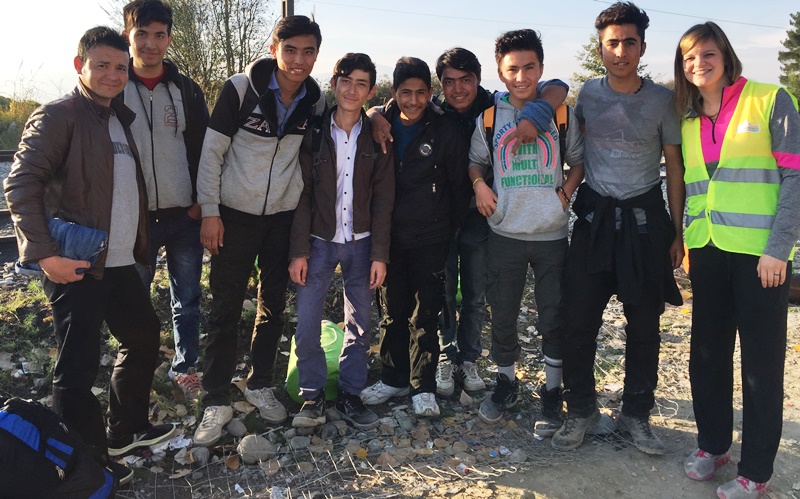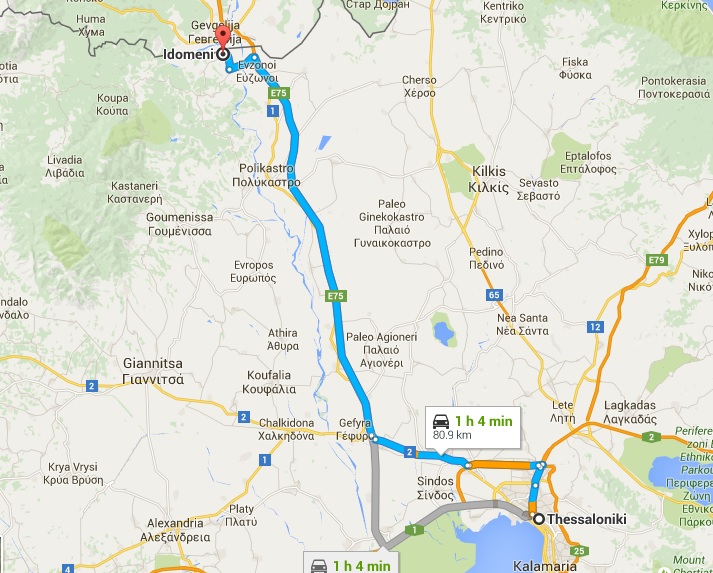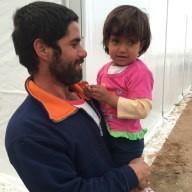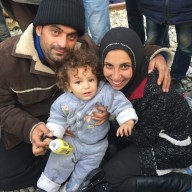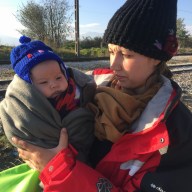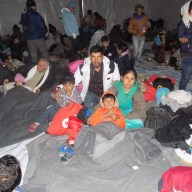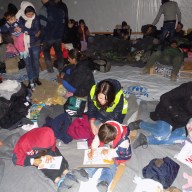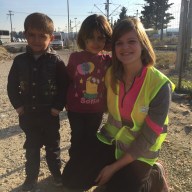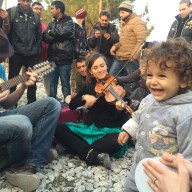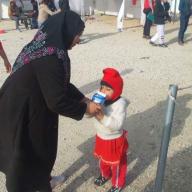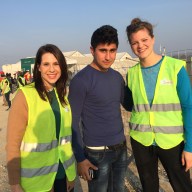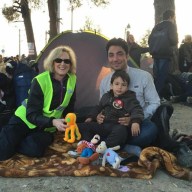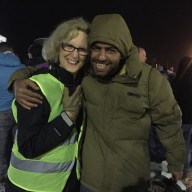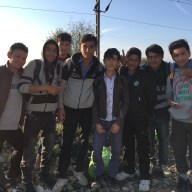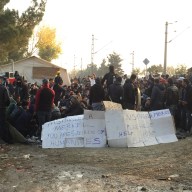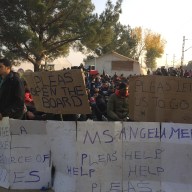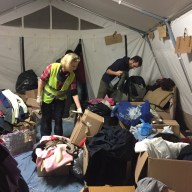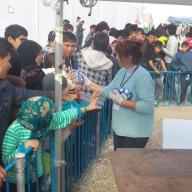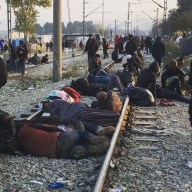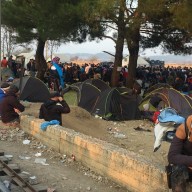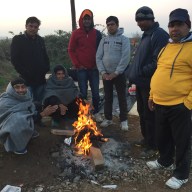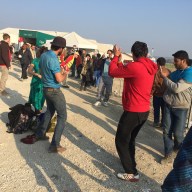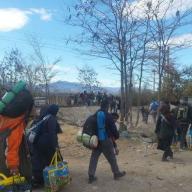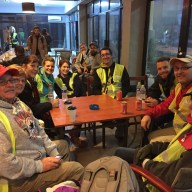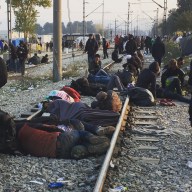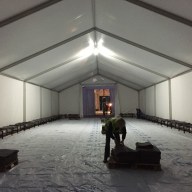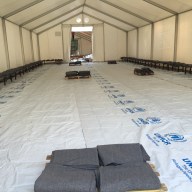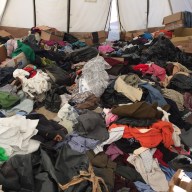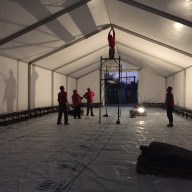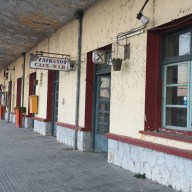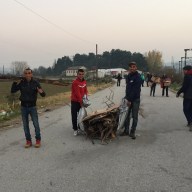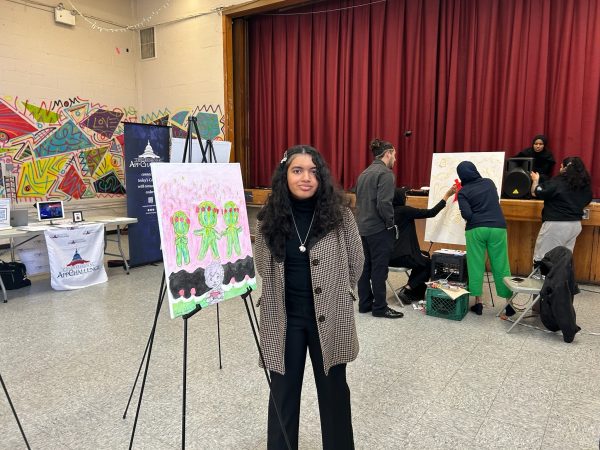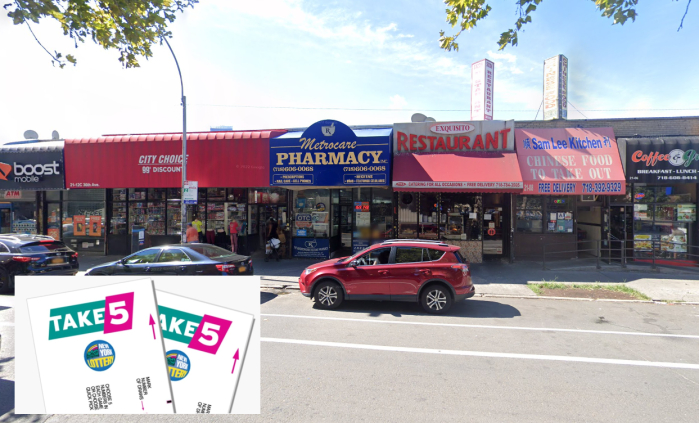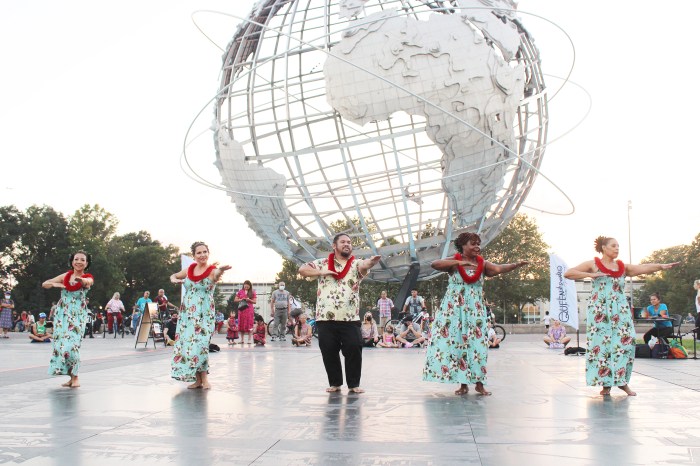The Syrian refugee crisis has been dominating headlines for months in Europe and only recently here in America, as the nation expects to take in thousands seeking refuge from the war-torn area.
Astoria resident Lindsay Mayberry often heard about the strife in Syria and the plight of those fleeing from ISIS (the Islamic State). Raising three kids, however, left her with little time to fully educate herself about the conflict.
Her husband, Larry, urged her to read a New Yorker article documenting the escape of one Syrian refugee and also suggested that she volunteer with Mazi Brosta, a humanitarian organization that stationed volunteers at the Greek/Macedonian border.
“After I read the article and watched [a] video, I couldn’t sleep. And nothing keeps me awake. I’m a mom to three boys,” Mayberry said. “But this night I could not stop the images of fathers, mothers, children, being pushed out to sea in a little raft, out into the cold, out into the unknown and told never to return.”
Mayberry read the article on Oct. 20 and, the next day, booked a flight to Thessaloniki, Greece. Accompanied by her mother Karen Davis and friend Kari McGhee, Mayberry stayed at a hotel in the city and would drive one hour north to the Greek/Macedonian border near a town called Idomeni.
The trio spent one week in Greece and four days attending to the thousands of people waiting to cross into Macedonia. Volunteers— who stayed at the camps each day until about 2 a.m.— were in charge of distributing food, tents and blankets and answering questions.
“At one time, I’d have 10 different hands on my neon green vest, hands that were desperately seeking answers,” she said.
On Nov. 18, Mayberry entered the makeshift camp around noon and began directing the buses full of people who entered the grounds. People traveled from Syria, Afghanistan, Iraq, Iran, Pakistan, Somalia and even Nepal for a fresh start. Most of the refugees were headed to Germany.
Each person would receive a ticket number, food, warm clothes and shoes — many of the refugees were wearing sandals when temperatures dipped in the 40s — before walking almost a mile to reach the Macedonian border.
A mother of three, Mayberry was immediately drawn to the children at the camp and began to entertain them with small games.
On the second day, Macedonia closed its borders but the buses did not stop. The volunteers were asked to create a second camp site, called Site B, less than a mile away from Site A.
Tents for the newcomers were sparse and then non-existent. Mayberry recalls a pregnant couple asking her friend for a tent. McGhee knew there were none left but tried locating one. When she came up empty-handed, she began to cry and apologize.
“[The couple] wiped her tears from her face and said, ‘It’s OK,’” Mayberry said.
The Astoria resident met many people during her four days but the one who made the biggest impression was a 19-year-old Iraqi named Anas*. He was dressed in a leather jacket, with large dark curls and pierced ear. Though the United Nations offered to give the refugees warm clothes, Anas was adamant about keeping his “stylish” leather jacket on.
The two became fast friends and Anas even gave her a nickname – Rose.
He spoke a little English and was able to translate some questions directed at Mayberry. He spent all day by her side, answering questions and handing out blankets. They eventually began to exchange stories about their lives. Anas came to the camp with a group of friends his age who were all traveling to Germany. His parents were too old to travel such a far distance so he decided to make the trip without them.
When Mayberry showed him pictures of her three children and explained to him that her 6-year-old son was adopted, Anas had one request.
“His eyes got big, his mouth open a little and said in broken English, ‘Do you think you could adopt me Rose, and take me with you to America?’ My heart skipped. My eyes teared up and I wished in that moment that I truly could take him home with me,” she said.
The camp’s population had swelled to 6,500 by the third day. Officials began to let people cross the border but only Syrians, Iraqis and Afghanis. People from those countries were considered refugees from “war-torn countries” and everyone else was a migrant fleeing economic hardship.
Mayberry, McGhee and Davis used the weekend to rest. Mayberry mostly slept through the two days. Unrecognizable faces and crowds of people visited her dreams.
Though the refugees were hungry and tired, they also carved out time to have fun. A crowd of about 60 people gathered in a circle as two musicians from New Orleans and Denmark filled the camp with music. Mayberry was ushered into the circle by a husband and wife to watch their 2-year-old dance.
Along with the small celebrations, she also watched as desperation took over. About 100 men began silently protesting when the borders closed. They made signs urging German Prime Minister Angela Merkel to open the borders. A few of the protesters even sewed their mouths shut with whatever material they could find at the camps.
It’s been a week and a half since Mayberry returned home and the borders are still shut. Border patrol has given the refugees several options, including paying 50 euros to go back to Athens, making the journey back home or waiting at the camp until the borders open.
On Nov. 23, the last day of her stay, as many as 2,000 people had walked back to Athens in hopes of finding another way into Germany or Sweden or other European countries that would welcome them. Mayberry hopes one of those people was Anas. She never asked him for his last name and could not locate him when she returned to the camp the day after their encounter.
“I didn’t do anything to deserve growing up in the United States, and very easily all that I’ve known could change in an instant. It could be me standing in a food distribution line with my husband and three little boys,” she said.
Mayberry will recount her story at the Connection Church in Astoria, where her husband is a pastor.
She urges people to educate themselves on the crisis and donate items such as baby carriers, diapers and money to organizations on the ground such as Feed the Children.
“These men and women, these children and babies, they are just like you and me,” Mayberry said. “They need to be shown that they are worthy of joy and a life without fear, they need someone to look at them and deem them worthy to be fought for and protected.”
Editor’s Note: *The name of the young man was changed by Mayberry to protect his identity.

